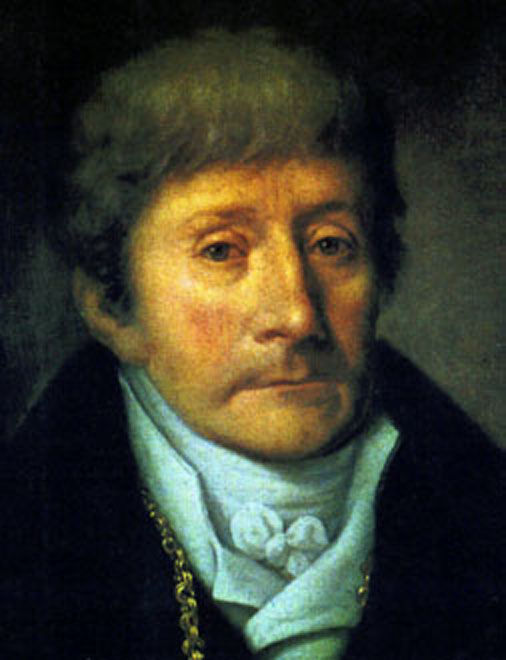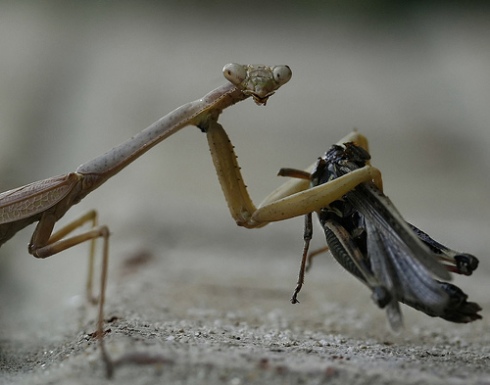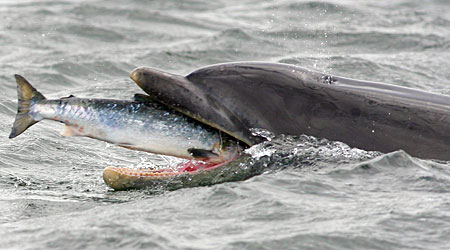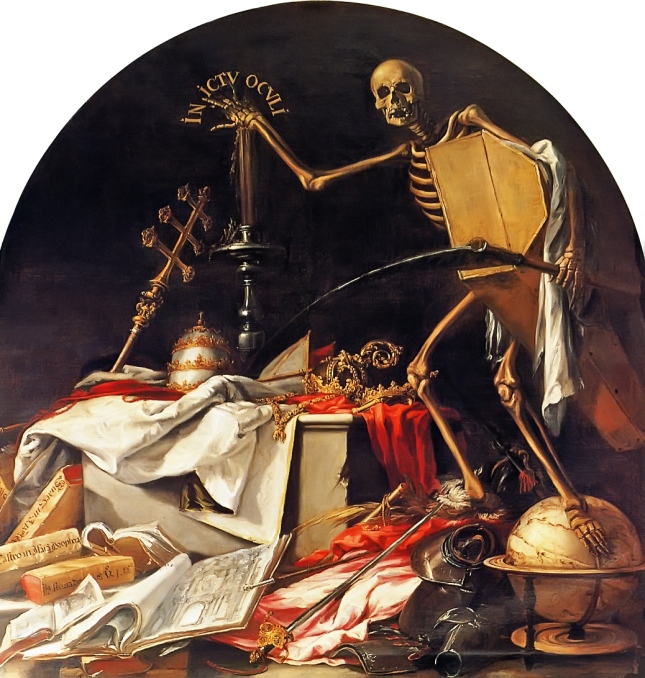I recently finished The Hunger Games trilogy, & think it requires some comment. I’m aware of why some critics think the books deeply flawed from a moral perspective, yet I find the story provocative in the best sort of way. The 3rd book was a literary letdown, as many have already noted, but I found the resolution satisfying nonetheless. It seems that one of the questions I have wrestled with is whether or not I can dislike the main protagonist of a series, yet find her both convincing & effective as a character. My biggest struggle concerns the suitability of the series for my 7th grader, whose friends—some of them younger than her—have read the series & seen the film. She is thus exposed to the Team Peeta talk that the media machine spins out. But how prepared is she for the types of discussions we will have about redemptive violence, scapegoating, just war theory, & the other topics I think need addressing?
Likewise, the question of the literary presentation of ambiguous characters like Katniss requires attention. When young readers will so quickly identify with her, does it make sense for an author whose intended audience is teens to have such a character involved in the murder of innocent people, even if in the service of a greater good? I remember the boy in Cormac McCarthy’s The Road asking his father if they were the good guys, seeking some assurance that they had not departed from the proper path. That story was for a more mature audience, one hopefully better able to negotiate the horrors revealed in it. As an adult, I can appreciate how ruined a person Katniss becomes as a result of what happens to her & the resulting choices she makes, & see The Hunger Games as a realistic portrayal of how violence spins out of control & destroys everyone in its path. But in the consumer culture these books (& film) inhabit, where the characters become catch phrases, how likely is it young readers will be able to appreciate some of the subtleties in the story?
I’ll start with some familiar topics I teach at Xavier & have written on previously. Check some of my earlier posts at the Emeth Society blog for more details on Peter Singer. Please be aware that I will ramble, as I am trying to find my thoughts on these troubling questions.
✜✜✜✜✜✜✜✜✜✜✜✜✜✜✜✜✜✜✜✜✜✜✜✜✜✜✜✜✜✜✜✜✜✜✜✜✜✜✜✜✜✜
In 1973 Ursula Le Guin published “The Ones Who Walk Away From Omelas,” a story I stumbled upon years ago in a moral philosophy anthology. The premise is simple & elegant: the shining, prosperous city of Omelas, filled with happy & cultured citizens, requires for its continued success the suffering of a single child, locked in darkness & misery in a basement closet. Here is Le Guin’s description:
In a basement under one of the beautiful public buildings of Omelas, or perhaps in the cellar of one of its spacious private homes, there is a room. It has one locked door, and no window. A little light seeps in dustily between cracks in the boards, secondhand from a cobwebbed window somewhere across the cellar. In one corner of the little room a couple of mops, with stiff, clotted, foul-smelling heads stand near a rusty bucket. The floor is dirt, a little damp to the touch, as cellar dirt usually is. The room is about three paces long and two wide: a mere broom closet or disused tool room. In the room a child is sitting. It could be a boy or a girl. It looks about six, but actually is nearly ten. It is feeble-minded. Perhaps it was born defective, or perhaps it has become imbecile through fear, malnutrition, and neglect. It picks its nose and occasionally fumbles vaguely with its toes or genitals, as it sits hunched in the corner farthest from the bucket and the two mops. It is afraid of the mops. It finds them horrible. It shuts its eyes, but it knows the mops are still standing there; and the door is locked; and nobody will come. The door is always locked; and nobody ever comes, except that sometimes–the child has no understanding of time or interval–sometimes the door rattles terribly and opens, and a person, or several people, are there. One of them may come in and kick the child to make it stand up. The others never come close, but peer in at it with frightened, disgusted eyes. The food bowl and the water jug are hastily filled, the door is locked, the eyes disappear. The people at the door never say anything, but the child, who has not always lived in the tool room, and can remember sunlight and its mother’s voice, sometimes speaks. “I will be good,” it says. “Please let me out. I will be good!” They never answer. The child used to scream for help at night, and cry a good deal, but now it only makes a kind of whining, “eh-haa, eh-haa,” and it speaks less and less often. It is so thin there are no calves to its legs; its belly protrudes; it lives on a half-bowl of corn meal and grease a day. It is naked. Its buttocks and thighs are a mass of festered sores, as it sits in its own excrement continually.
Despite the discomfort such a spectacle causes the citizens of Omelas, they all know there is nothing they can do to alleviate the suffering of the child. As we are told,“they all understand that their happiness, the beauty of their city, the tenderness of their friendships, the health of their children, the wisdom of their scholars, the skill of their makers, even the abundance of their harvest and the kindly weathers of their skies, depend wholly on this child’s abominable misery.” None of these people are outwardly cruel, in the normal usage of the term. None visit the child to torment it or add to its sufferings. None publish tracts on why the child should suffer, on why it deserves its fate. And they all feel the necessary sorrow such a reality should provoke. But they can not aid the child, or seek any change at all, if they wish to preserve their status quo:
They feel disgust, which they had thought themselves superior to. They feel anger, outrage, impotence, despite all the explanations. They would like to do something for the child. But there is nothing they can do. If the child were brought up into the sunlight out of that vile place, if it were cleaned and fed and comforted, that would be a good thing indeed; but if it were done, in that day and hour all the prosperity and beauty and delight of Omelas would wither and be destroyed. Those are the terms. To exchange all the goodness and grace of every life in Omelas for that single, small improvement: to throw away the happiness of thousands for the chance of the happiness of one: that would be to let guilt within the walls indeed.
The title of the story refers to those who can, for one reason or another, no longer live with such a bargain. These people leave Omelas for no one knows where: The place they go towards is a place even less imaginable to most of us than the city of happiness. I cannot describe it at all. It is possible that it does not exist. But they seem to know where they are going, the ones who walk away from Omelas.
This story appears in, among other places, the section of an anthology covering utilitarianism in its different forms, & is used by the editors to raise the question of how much suffering is acceptable when great benefit or happiness results. I like using the story with my Seniors, as it nicely complements Shirley Jackson’s “The Lottery,” which they read in their English classes, & encourages consideration of the deals we make in society to benefit ourselves but which harm others. I usually warn them not to dismiss the scenario as too fantastic, & ask them why I think this. Some raise the issues of sweat shops or corporate greed, while others discuss how we treat animals to feed ourselves. A few mention abortion. I try to draw attention to what must occur in Omelas for this economy to function as well as it does, namely, the complete dehumanization of the child & the ability to justify its suffering, which leads to the further dehumanization of those offering justification. Such justification is always necessary, & the citizens of Omelas are well-trained in offering it, especially as they must find a way to live with themselves in the face of such wretchedness:
Often the young people go home in tears, or in a tearless rage, when they have seen the child and faced this terrible paradox. They may brood over it for weeks or years. But as time goes on they begin to realize that even if the child could be released, it would not get much good of its freedom: a little vague pleasure of warmth and food, no doubt, but little more. It is too degraded and imbecile to know any real joy. It has been afraid too long ever to be free of fear. Its habits are too uncouth for it to respond to humane treatment. Indeed, after so long it would probably be wretched without walls about it to protect it, and darkness for its eyes, and its own excrement to sit in. Their tears at the bitter injustice dry when they begin to perceive the terrible justice of reality, and to accept it. . .
Yet there is another dimension to this tale that brings to my mind The Hunger Games & what it portrays, a dimension that should warn the reader not to read Le Guin’s story as a simplistic fable. And to consider the very real modern & contemporary societies where analogous horrors have been & continue to be perpetrated in one form or another.
. . . Yet it is their tears and anger, the trying of their generosity and the acceptance of their helplessness, which are perhaps the true source of the splendor of their lives. Theirs is no vapid, irresponsible happiness. They know that they, like the child, are not free. They know compassion. It is the existence of the child, and their knowledge of its existence, that makes possible the nobility of their architecture, the poignancy of their music, the profundity of their science. It is because of the child that they are so gentle with children. They know that if the wretched one were not there sniveling in the dark, the other one, the flute-player, could make no joyful music as the young riders line up in their beauty for the race in the sunlight of the first morning of summer.
“They know compassion.” And nobility, poignancy, profundity. In short, things which make any society “civilized.” “They” are not uncouth barbarians, but the most cultured of people, those with whom we like to identify ourselves. Yet their compassion, & the compassion of all societies that engages in rationalizations for its moral barbarity, falls well short of the full demands love places on us, the “suffering-with” the wounded & vulnerable other in our midst that the gospel calls us to. Their compassion is one that ultimately kills. This thought occurs to me every time I hear the bioethicist Peter Singer of Princeton University speak about compassion & his desire to alleviate suffering by offering a thoroughly rational ethical theory, one freed from the stains of emotion, not to mention all hints of teleology & religious faith. When covering his work some of my students openly wonder how he can speak of compassion & the elimination of suffering while claiming that there is little ethical difference between killing a snail & a day-old infant. The personhood theory he espouses alongside his updated version of utilitarianism would be of great use in Omelas, I think. Distinguishing between a human being & a human person based on cognitive capacities is a clever move for anyone interested in justifying the mistreatment, including the death, of those considered expendable because they are burdensome. Abortion rights advocates like this approach for obvious reasons, as do medical ethicists seeking to justify infanticide by calling it post-birth abortion. What is so worrisome, I try to convey to them, is how dehumanizing others desensitizes us to not only their dignity as persons, but to our own humanity. CS Lewis noted how our mistreatment of others makes it easier & more satisfying to continue mistreating them, just as acting in a loving manner ultimately makes it easier to love. He knew Aristotle & St. Thomas, & wrote compellingly not only about growth in the virtues & vices, but also about the abolition of man, the process by which we gradually surrender the moral sensibilities that provide the foundations for civilized life. Bl. John Paul II spoke of the culture of death that emerges out of this abolition, a culture that has little difficulty in speaking of compassion while pursuing its exact opposite. Even the most perverse societies, like that of Omelas, have their cultured devotees of compassion, justice, peace, etc., who openly weep at injustice & suffering, so long as it is the right type. In a weird sort of parallelism, the daily cruelties visited upon the vulnerable produce in the abusers a kind of psychic energy enabling not only their tears, but also their cultural achievements. I have no reason to doubt that Peter Singer is a fine father to his daughters, that medical ethicists justifying infanticide are fine employees & upstanding citizens. Hitler was very nice to his secretaries; as Traudl Junge recounts in her account of her life serving Hitler, he was like a father to her, & she appreciated his many kindnesses. The cruelties he visited upon his enemies, like those rationalized by advocates of personhood theory & the continued suffering of the child in Omelas, often seem completely divorced from genuine hatred. And they are considered necessary, just, required for social harmony. The cruelties are rationalized, shown to be necessary if we wish to be truly humane. Theories are developed showing how logically necessary it is to perform the rituals of cruelty. As is the case with the citizens of Panem.
As Collins describes this nation & its inhabitants, there is little reason to consider Panem, its capital a shining city of prosperity, as the dark haunt of bloodthirsty ghouls. The bread-&-circuses theme is carefully announced & illustrated, hearkening us back to ancient Rome & its taste for murderous entertainments, & some of the characters we meet from there are indeed bizarre & callous. But apart from President Snow, who literally reeks of blood (why he does is explained in the 3rd book), we do not see anyone with horns or a pitchfork. The people there have the same concerns & fears as we do, & rightly worry about the social chaos that rebellion can cause. Of course Panem is also bathed in the blood of the innocent, & its citizens revel in all the rituals attached to the Hunger Games themselves. But ask any of them if their enjoyment of these rituals suggests a warped moral sense or a taste for cruelty, & you’ll be able to count the blank stares. Just as most of the citizens of Omelas consider themselves & their society just; just as Peter Singer & all the other contemporary merchants of death raise the flag of compassion on the graves of their victims. They are able to do this with a straight face because they fail to see those victims as victims, as real persons deserving anything like real compassion. Thus their growing indifference to the suffering they glamorize, & their increasing capacity to perfect the language & rituals by which they justify & routinize their cruelty.
Suzanne Collins’ real contribution in her trilogy, however, has less to do with how she paints the bad guys & more to do with how the good guys emulate them. Apart from Peeta, who among the good guys is tortured by the violence they are forced into? Katniss is difficult to read, at least after only one reading of the series. She is sympathetic & heroic, cold & calculating all at once. And she becomes a seasoned killer. Above all, she is ruined by what happens to her & the subsequent choices she makes, & this is where Collins achieves something JK Rowling does not in the Harry Potter books. There, good & evil are more easily distinguishable. While Draco Malfoy encourages some sympathy, how many other Slytherins or Death Eaters are more than one-dimensional characters, wholly bent on evil? Severus Snape is the one great literary character in the series, a man of no little complexity who repels & attracts at the same time, & Dumbledore develops greater depth when we learn of his adolescent desire for power & how this led to tragedy, for him & others. But fighting against the bad guys never seems to affect the good guys all that much. Harry is haunted by the loss of his parents & his godfather, but does he ever wrestle with using unforgivable curses (unsuccessfully, I have to add)? Fortunately for him, he doesn’t actually kill anybody, especialy innocents, at least that we can see. (Is that right? Apart from Voldemort, does Harry actually kill anyone? I can’t recall.) As dark as the series got in the last 2 books, it is remarkably staid in its violence when contrasted with Collins’ trilogy, & we are never encouraged to reflect on the person Harry is forced to become as a result of his involvement in the war against Voldemort, because he doesn’t really change all that much. We cheer him on as he hunts horcruxes & pushes aside one attempt after another to thwart him, but the chief difficulty he faces is procedural, not moral: How can he find & destroy horcruxes, & then kill their maker? Because of this, most of the violence in the Harry Potter series is unremarkable. Characters we like die at the hands of the wicked, & characters we like kill the wicked, but the moral stakes are much lower than those in The Hunger Games trilogy. Again, Katniss is shattered not only by her losses, for, like Harry, she loses family members, but most of all by her own actions. Her final act of killing does seem to indicate a moral awareness of some depth, but by that point she is so deeply implicated in the very acts she is fighting against that it seems hollow. The laughter of President Snow is telling. Does he see what Katniss has become?
This is a tremendous risk for Collins. Teen readers are not often called upon to exercise the type of discernment required by these books, & I suspect that most readers, even adults, will likely miss the invitation to lament the cruelties we compassionate, cultured people too often justify & celebrate. Many readers have complained about how the 3rd book was a disappointment, for one reason or another. They especially don’t like how the characters develop. Perhaps they want the same assurances JK Rowling gave, the nice wrap up, an epilog in which normality reigns & where our heroes can grow old in peace after vanquishing their foes. What Suzanne Collins refuses to do is allow any touch of normality for a protagonist forced to endure not only the barbarity of the rituals of a modern panem et circenses government strategy, but her own growing indifference to the use of scapegoating & violence as a strategy to defeat the bad guys. For this Collins should be thanked, not chastised, as some reviewers shocked by the presence of such violence do. Whether or not you like the books, or think them fit reading for teens or adults, there is in them an invitation to reflect upon not only the horrors of war & our capacity to turn murder into reality TV, but upon the price all have to pay for the violence we too often endorse as the only means of achieving peace & justice.
—Anthony DiStefano













